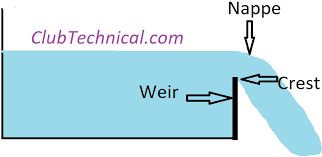Construction Project Management: Principles And Processes
Construction project management requires the expertise, knowledge,
and skills of a traditional project management team. However, the phases of a
construction project are different than that of traditional project management.
Large construction projects are complex in nature and there is a need for a
large array of relevant experience in handling various technical aspects,
managing a diverse team, and meeting defined objectives.
The construction phase
can be started right after the bidding process is concluded. Most large
construction projects involve the following phases:
Initiation
Before a project is
commenced, the project manager must analyze and develop the business case to
determine whether or not the project is economically viable and worth
undertaking. Other stakeholders may be requested to conduct feasibility
testing. It is important for all the stakeholders to be on the same page and
agree to proceed with the project. Writing a project initiation document, which
defines the business needs and requirements, is one of the initial activities.
Planning
Irrespective of the
industry, developing a roadmap is one of the most important project management
tasks. It includes the approved document and the project management plan. The
planning process involves preparing documents that guide execution and control
as well as set the baseline for schedule, cost, and scope.
Scope statement, work breakdown structures (WBS),
risk management and communication plans are some of the important aspects of
the planning phase. Scope documentation defines the project’s objectives,
deliverables, key milestones, benefits, etc., while work breakdown structure
distributes the project in manageable chunks.
A communication plan
focuses on creating a common framework that everyone can use to avoid or
resolve conflicts and misunderstandings. As the name suggests, a risk
management plan is all about identifying the potential risks and devising
strategies to handle them. When it comes to construction, exceeding the
estimated cost and late project delivery are two of the major risks.
Execution and
progress measurement
In the execution phase,
the project management team assign resources, set up tracking systems implement
project management plans, update the schedule, and complete all the tasks while
observing strict adherence to predefined budget and project timeline. Progress
measurement is an important aspect that helps managers keep track of the field
progress.
Closure
The closure is the final
phase where project managers hold a meeting to review and discuss the overall
status of a project in terms of completed and uncompleted objectives. The
construction industry can sometimes struggles to deliver projects on time and
within budget. It is vital to have to an experienced project management team
in order to ensure success.
About Quality
Millwright
Quality Millwright provides construction and project
management expertise as one of our prime services. Visit our website or contact
us to learn more about our millwright services in Edmonton and across Canada.



Fine
ReplyDelete